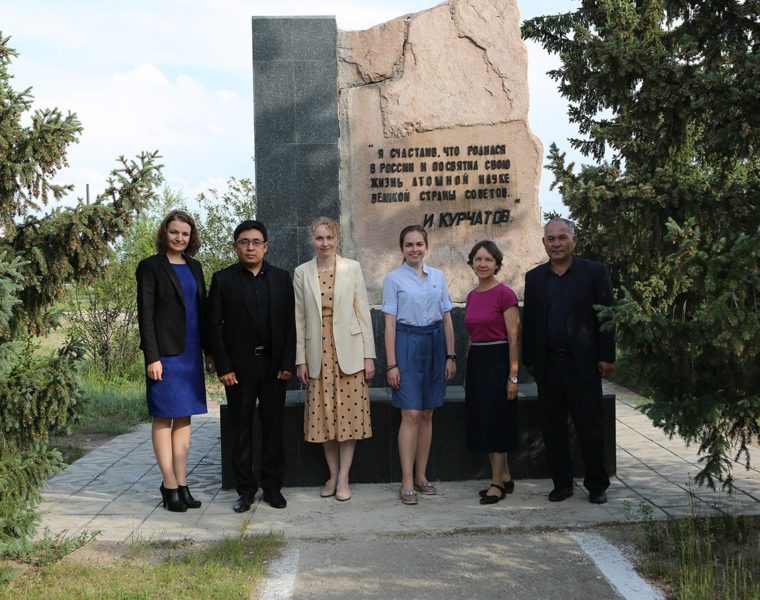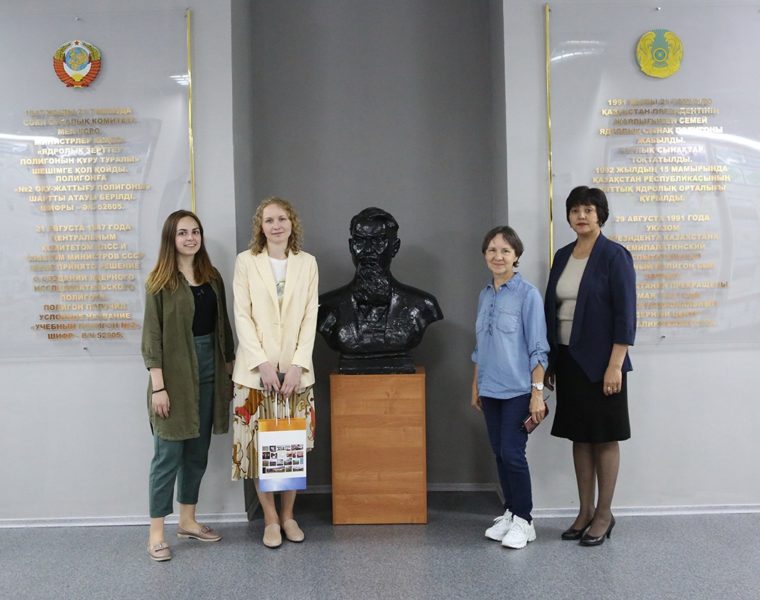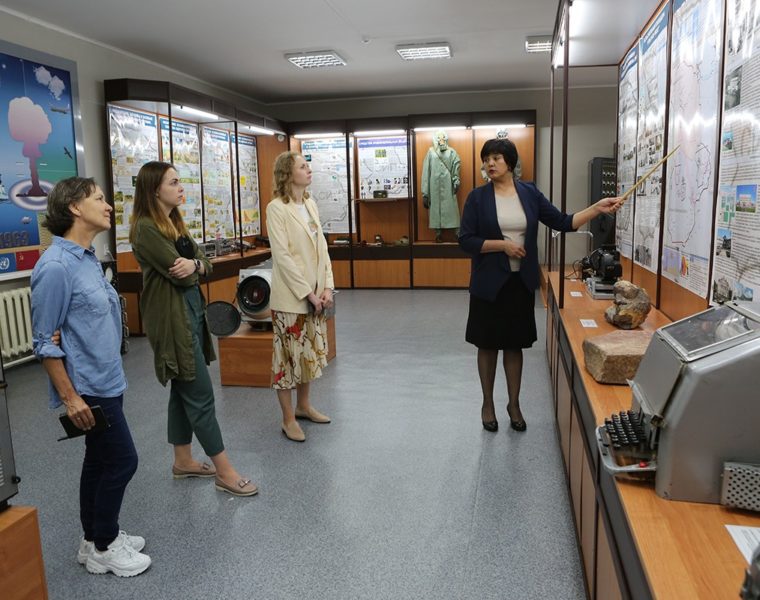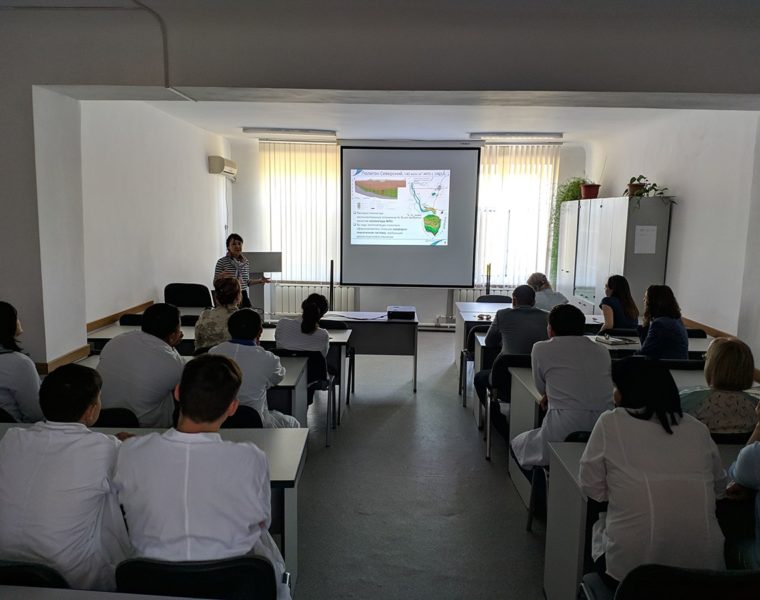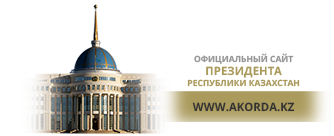М.В. Ломоносов атындағы ММУ қызметкерлер ССП мұражайына және Филиалдың зертханалық корпустарына барды
20.06.2019
ҚР ҰЯО РМК «Радиациялық қауіпсіздік және экология институты» филиалы үшін келісімшарттық негізде өндірістік, дипломалды іс-тәжірибелерді ұйымдастыру дәстүрге айналған, айта кететіні, тек Қазақстанның оқу орындарынан ғана емес, студенттер ТМД елдерінен де келуде. Атап айтсақ, екінші жыл қатарынан Аналитикалық зерттеулер бөлімінде М.В. Ломоносов атындағы Мәскеу мемлекеттік университетінің химия факультеті радиохимия кафедрасының 5 курс студенттері іс-тәжірибеден өтеді. Биылғы жылы (01-28 маусым аралығында) іс-тәжірибеден Полякова Татьяна Романовна өтіп жатыр.
Ғылыми-өндірістік базамен, аналитикалық өлшеулер жүргізу әдістемесімен танысу үшін, сонымен қатар, ұзақ өзара тиімді қарым-қатынасты орнату үшін Филиалға М.В. Ломоносов атындағы ММУ қызметкерлері – аға ғылыми қызметкерлер Власова Ирина Энгельсовна мен Романчук Анна Юрьевна келіп қайтты. Қонақтар ССП мұражайына және Филиалдың зертханалық корпустарына барды, оларға полигонға – «Тәжірибе даласы» және «Атом» көлі нысандарына жол жүру экскурсиялары ұйымдастырылды.
Шетелдік әріптестердің Филиал ұжымымен танысуы семинар шеңберінде өтті, онда ресей ғалымдары ММУ Химия факультеті ғылыми қызметінің негізгі бағыттарын ұсынған болатын. Кездесу барысында деректерді зерделеу, математикалық өңдеу және бірлескен іс-шаралар (конференциялар, семинарлар және т.б.) өткізу мүмкіндіктері мәселелері талқыланды. Ғылыми ынтымақтастық туралы келісім кездесудің қорытындысы болды, оның негізінде ғылыми мағлұматтармен алмасу, студенттерді, аспиранттарды және жас ғалымдарды оқыту, бірлескен әртүрлі ғылыми зерттеулерді жүргізу жоспарланған.
Қонақтар ұйымдастырушыларға жылы шыраймен қарсы алғандары, радиоэкология тұрғысынан бірегей Семей сынақ полигоны мен оның нысандарын көру мүмкіндіктерін ұсынғандары үшін шын ниетпен алғыстарын білдірді. Қонақтар атап көрсеткен екі жақтың да қызметкерлерінің рухани жақындығы келешектегі ғылыми ынтымақтастыққа қосымша нық сенім береді.




